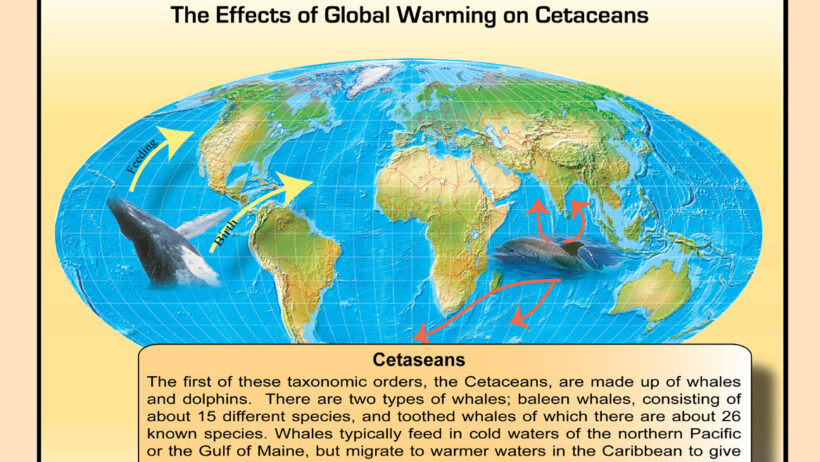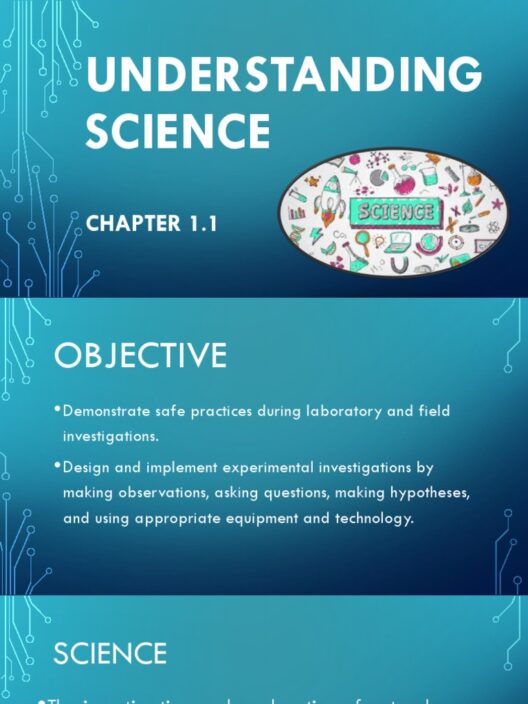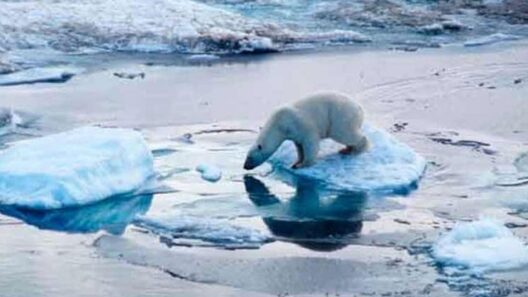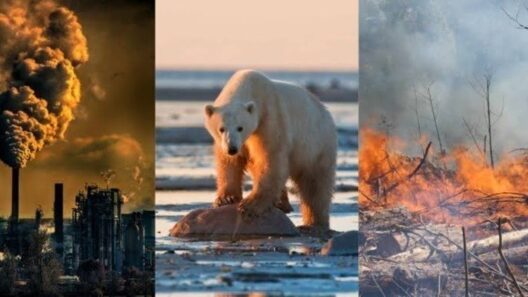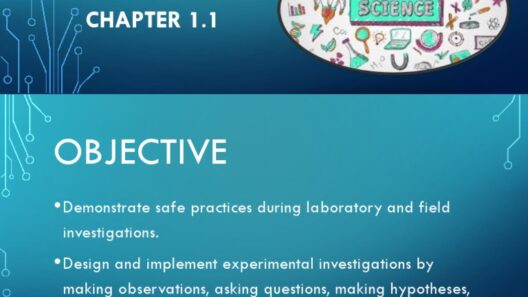The discourse surrounding global warming has intensified in recent years, particularly as evidence mounts that a warming planet may irrevocably transform many regions into arid, desolate wastelands. This alarming phenomenon poses critical questions about the future of biodiversity, agriculture, and human livelihoods across the globe. As temperatures rise, the ramifications of climate change extend well beyond merely warmer weather; they unfold as a complex tapestry of ecological and socio-economic challenges.
First, it is essential to understand the mechanics driving global warming. The cornerstone of this transformation lies in the greenhouse gas emissions, notably carbon dioxide, methane, and nitrous oxide, which cumulatively trap heat in the atmosphere. As these gases accumulate, they contribute to a cascade of atmospheric changes, resulting in patterns of climate variability that can extend across decades and even centuries. Notably, these shifts are often uneven, leading to localized phenomena that can exacerbate particular environmental stressors.
As the planet warms, the hydrological cycle—an intricate system regulating precipitation and evaporation—becomes increasingly volatile. Regions that once enjoyed a temperate climate may find their seasonal rains disrupted or entirely eradicated. This can lead to protracted droughts, devastating agricultural output, and an increase in soil degradation. For instance, areas that rely heavily on agriculture, like the Mediterranean basin, may face unprecedented challenges. The phenomenon of desertification, whereby fertile land transforms into desert, serves as a stark reminder of the potential consequences if climate trends continue unabated.
The concept of “desertification” incorporates not only the physical loss of land but also the socio-economic ramifications that ensue. When land becomes inhospitable, the local populace may find it increasingly difficult to sustain traditional farming practices. This often triggers a cycle of migration, as individuals and families are compelled to relocate in search of more viable living conditions. Such migrations can lead to urban overcrowding, increased poverty rates, and exacerbated social tensions, particularly in areas already grappling with political instability.
Furthermore, the desperation caused by dwindling resources can set the stage for conflicts over land and water resources. The Middle East, North Africa, and parts of South Asia are vulnerable hotspots; studies indicate that competition over increasingly scarce water supplies could ignite tensions among neighboring entities. The issue transcends borders, as water sources often flow through multiple regions, complicating geopolitical landscapes.
Climate models reveal that the worst impacts of warming could become more pronounced by the end of the 21st century. With projections suggesting global temperatures may rise by 2 to 4 degrees Celsius, the International Panel on Climate Change (IPCC) warns that several regions could experience irreversible changes. Notably, the Sahel region in Africa, which has faced increasing aridity, is anticipated to see extended dry spells as vegetation fails to keep pace with heat. Similarly, parts of Southern Australia have already been classified as undergoing “climate-induced desertification,” leading to increased fire outbreaks and biodiversity loss.
In contemplating the implications of a warming planet, it is vital to examine the role of biodiversity. Ecological systems around the world are already struggling to adapt to the rapid shifts imposed by climate change. Species that are unable to migrate or adapt quickly enough to changing conditions are at risk of extinction. The loss of biodiversity is a tragedy in its own right, but it also signifies the collapse of ecosystems that provide crucial services, such as nutrient cycling, water filtration, and carbon storage. Indeed, a decline in species diversity can ultimately erode the resilience of these systems, rendering them more susceptible to further climate disruptions.
Moreover, the long-term effects of global warming extend to human health. Increasing temperatures have been linked to the proliferation of diseases. Warmer climates can expand the habitat range of disease-carrying organisms like mosquitoes and ticks, leading to higher incidences of malarial and vector-borne diseases. Additionally, heatwaves can have dire consequences for vulnerable populations, especially the elderly and those with pre-existing health conditions.
The societal implications are profound as well. Economic downturns due to diminished agricultural output can lead to food insecurity and increased commodity prices. Such trends can exacerbate pre-existing inequalities, particularly in developing nations where agricultural practices are often less resilient and adaptive. As resource scarcity increases, the specter of social unrest looms larger.
Nevertheless, addressing these challenges is not insurmountable. Mitigation strategies must be employed to combat the forces of climate change. Sustainable agricultural practices, reforestation efforts, and the transition to renewable energy sources represent critical paths toward resilience. International cooperation and policymaking are essential to forge a global consensus on reducing emissions and investing in adaptation strategies that ensure communities can thrive instead of perish in response to climate extremes. Governments, non-governmental organizations, and individuals all hold the potential to contribute meaningfully to these solutions.
In conclusion, the question of whether a warming planet can turn regions into hot, dry wastelands is not merely a speculative inquiry; it is a pressing reality that demands our immediate attention. The transformation is rooted in a complex interplay of climatic, ecological, and socio-economic factors. If left unchecked, these dynamics may yield severe consequences that transcend geographic borders and impact the very fabric of society. Through concerted efforts, we can forge pathways to a more sustainable future, curbing the worst effects of climate change while fostering resilience that allows both humanity and the natural world to coexist harmoniously.



